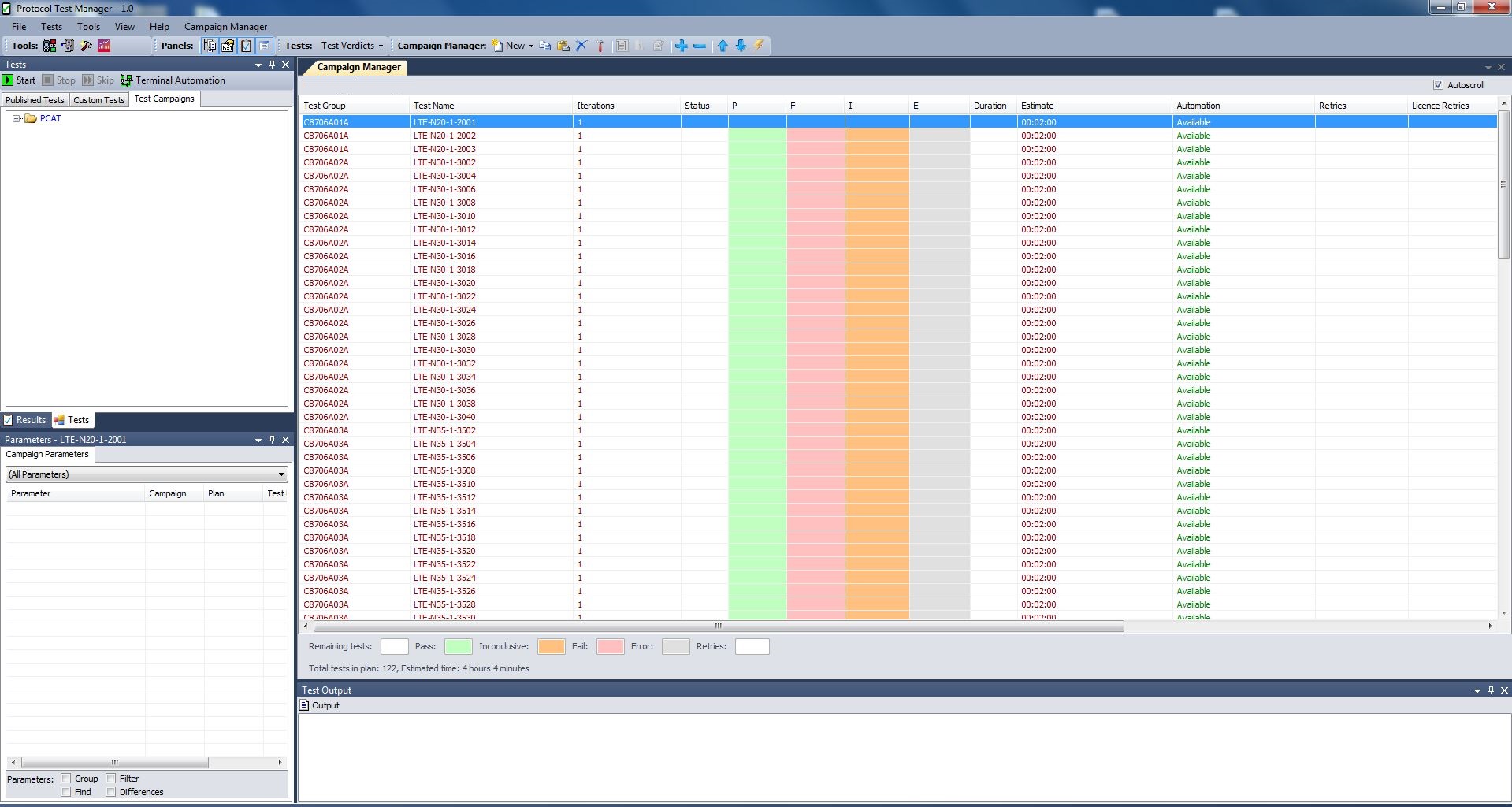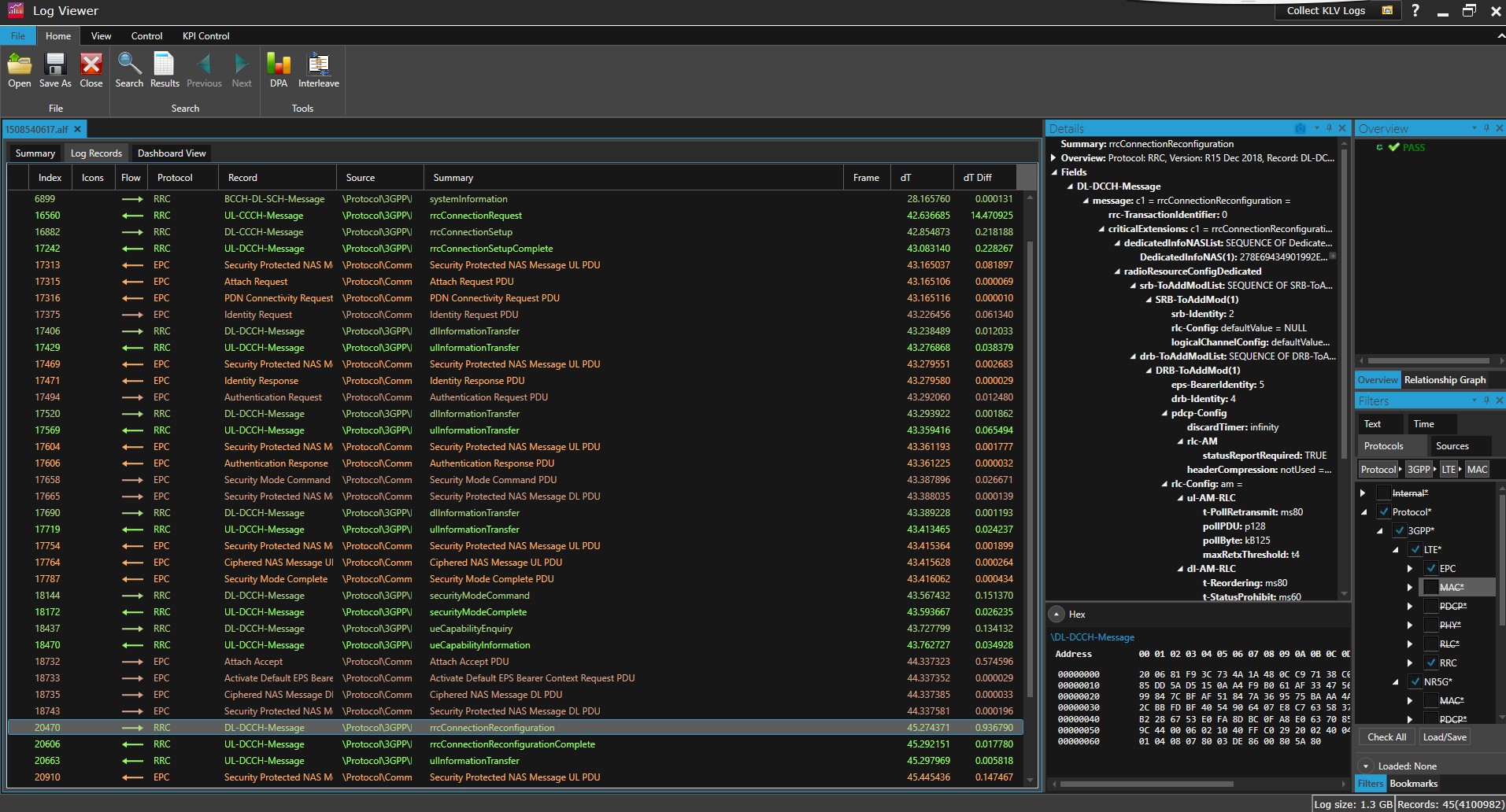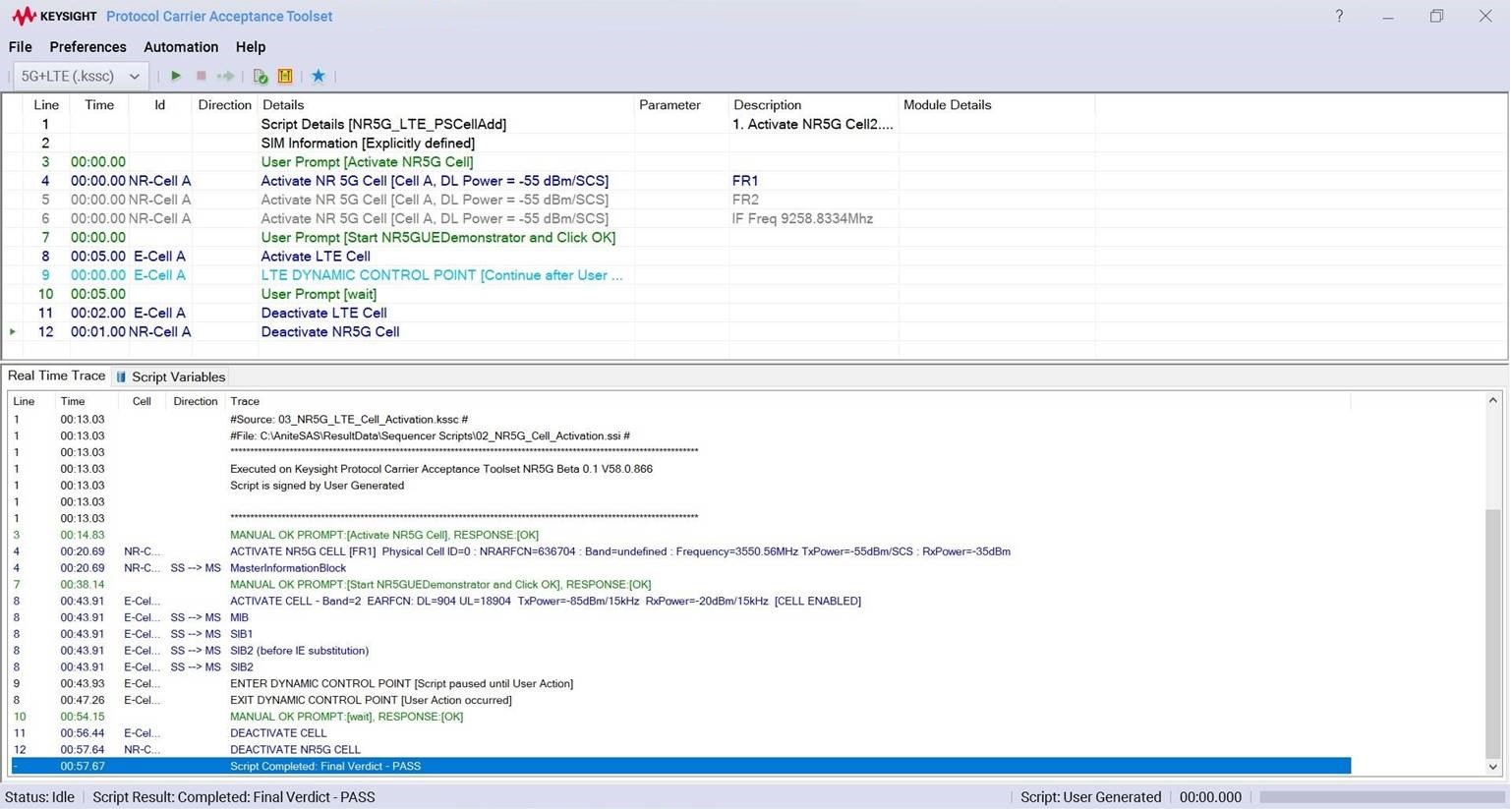您希望搜索哪方面的内容?
Highlights
Protocol Carrier Acceptance Test Software offers a comprehensive test plan support of the following mobile network operators: AT&T, T-Mobile, Verizon, China Mobile, China Telecom, China Unicom, DISH, and Rakuten.
- Signaling, application, and performance tests
- Flexible licensing infrastructure
- Comprehensive campaign management
- Advanced logging features for rapid debugging of test case failures
- Unattended test campaign execution with device automation
- Modular and scalable software
Protocol Test Manager
User-friendly environment to create, manage and execute large test campaigns. The test campaigns can be saved and re-run to test different devices.
The tests can be run manually or in automation. Test execution logs can be launched from Protocol Test Manager and reports of the results can be created in excel and Html formats.


Analyze the Test Results Accurately With the Log Viewer
The Log viewer is a powerful result analysis and logging tool that enables the user to view all protocol layers (i.e., PHY, MAC, RLC, PDCP and RRC) in one log.
- User-friendly graphical user interface
- Several windows displayed in just one view
- Filtering function to view the protocol layers of interest
- Easy troubleshooting
- Test System Diagnostic Data
Protocol Carrier Acceptance Test Software Specifications
Protocol Carrier Acceptance Test Software supports the test plans mandated by the following mobile network operators
- AT&T
- T-Mobile
- Verizon
- China Mobile
- China Telecom
- China Unicom
- Rakuten
- DISH
S8706A Protocol Carrier Acceptance Toolset
The Protocol Carrier Acceptance Toolset provides comprehensive access to protocol carrier acceptance test plans mandated by the world's major 5G mobile operators. The toolset flexibly addresses a wide range of test scenarios in sub-6GHz (FR1) and mmWave (FR2) frequencies, for both non-standalone (NSA) and standalone (SA) mode: signaling, performance and application testing including Wi-Fi, LBS and thermal.
Related Products & Solutions
Protect Your Innovation Investment
Want help or have questions?









 京公网安备 11010502040140 号
京公网安备 11010502040140 号